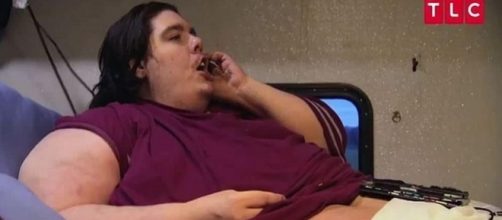TLC's bariatric surgeon Dr. Younan Nowzaradan gets some pretty dramatic weight loss from his gastric bypass surgery patients. You're probably wondering how "My 600-lb Life" patients like Chad Dean shed 300-400 pounds. The reality TV doc shared his secrets and you're in for a surprise. What's not on Dr. Now's bariatric surgery diet is as shocking as what is.
Dr. Now doesn't pussyfoot around weight loss
Dr. Nowzaradan of "My 600-lb Life" has a cult following among patients and rightly so. He has saved their lives. They lovingly call him "Dr. Now" and the nickname fits.
The good doctor demands immediate action to end morbid obesity. And that begins with weight loss prior to gastric sleeve implant. Patients like 850-lb Steven Assanti and 900-lb Sean Milliken are too dangerously overweight to safely undergo procedures. They have to lose weight to get weight loss surgery. And Dr. Now knows there's not much time before lymphedema, cellulitis and lifestyle diseases kill them. So, his 800-calorie diet is ruthless but necessary.
Gastric bypass patients must prove themselves
Before surgery, the reality television physician puts "My 600-lb Life" patients on an essentially liquid diet of 800 calories. Once they drop enough weight, patients live independently in Houston for a few months while awaiting gastric bypass surgery.
This is in part because they need to demonstrate that they can control eating habits and continue to lose weight when not under medical care.
Why Dr. Now's diet eliminates critical food group
After bariatric surgery, the stomach is significantly smaller. So food must efficiently meet their needs without adding bulk. And you might be surprised to learn that vegetables are the bulk-adding culprit. So why then do all diets suggest eating mostly fruits and vegetables? For people who need to shed less weight, eating fruits and vegetables works. But not for those with reduced stomach capacity. The reality TV doc explains that vegetables fill the stomach without curbing hunger. Dr. Now's diet increases veggie intake after patients get used to the new routine.
What are the most important foods after gastric bypass?
Protein and fiber are critical. Protein intake is controversial and Dr. Now's diet calls for 60 grams a day. But, he cautions, not all protein is created equal. Patients need to balance caloric intake and portion control so they must eat small servings (3-4 ounces) of low-calorie protein (with no transfat or saturated fat) like fish, white meat chicken and turkey, nuts and seeds, beans and lowfat dairy. This gives more bang for the buck. Fiber flushes the system, provides essential fatty acids and burns fat.

